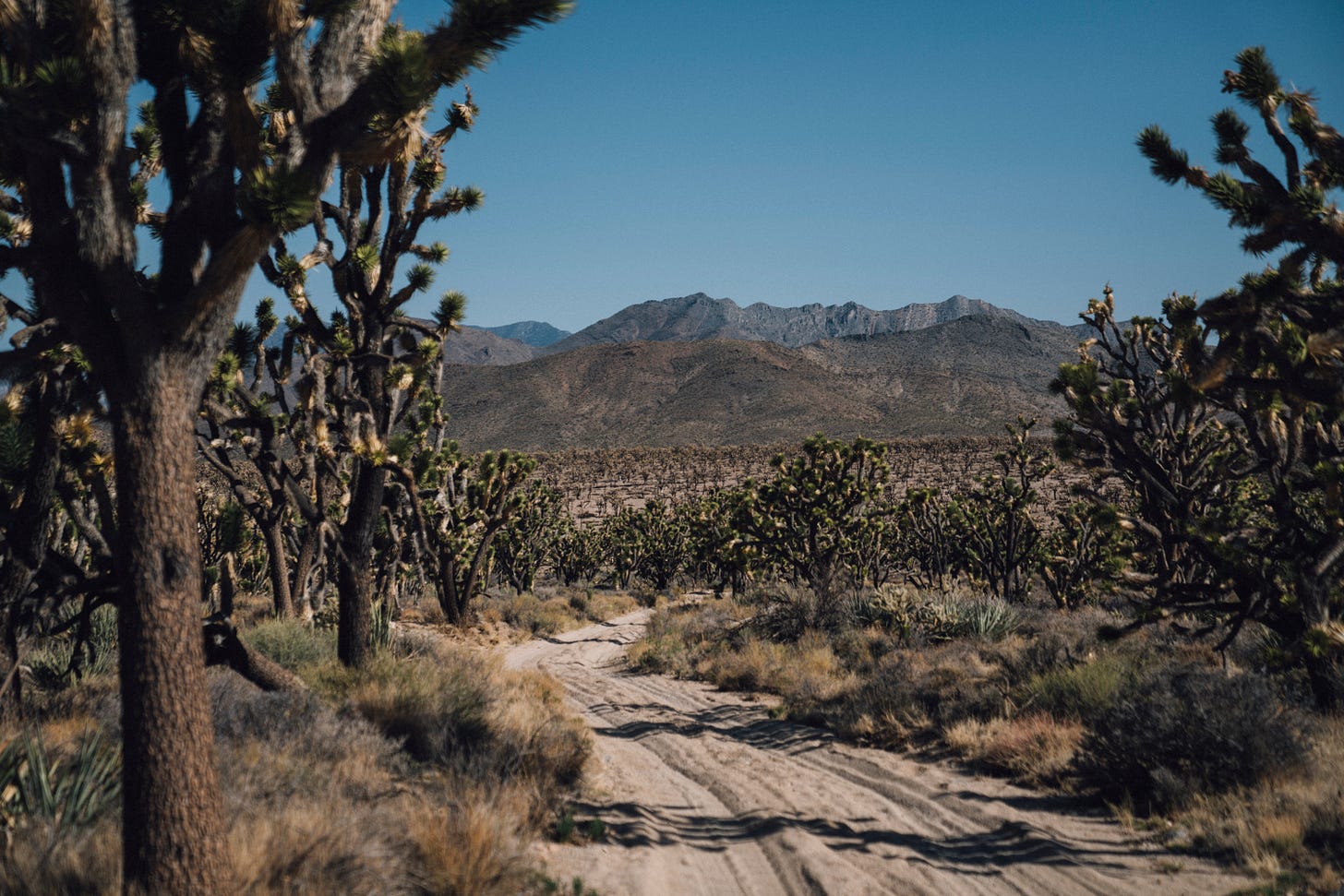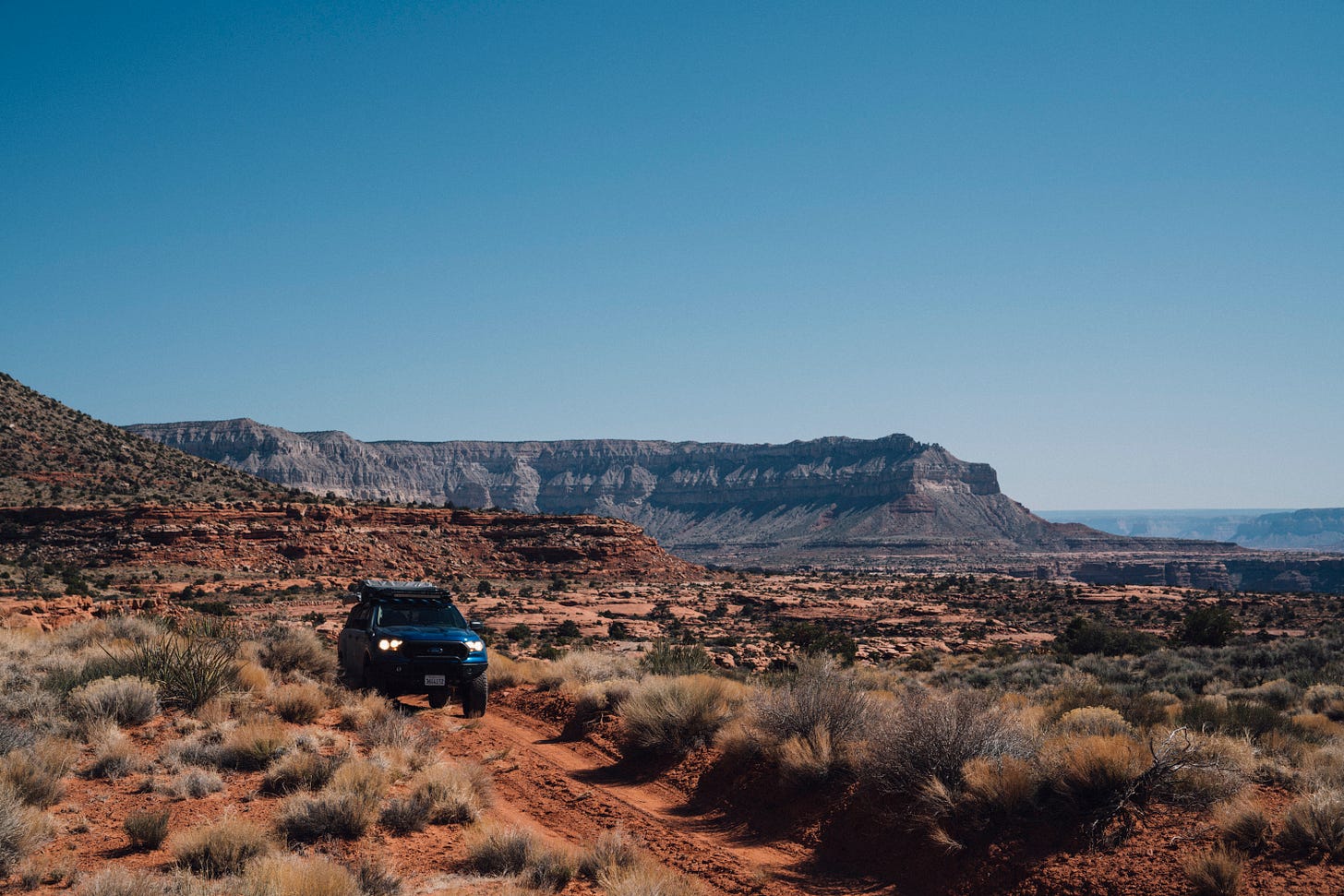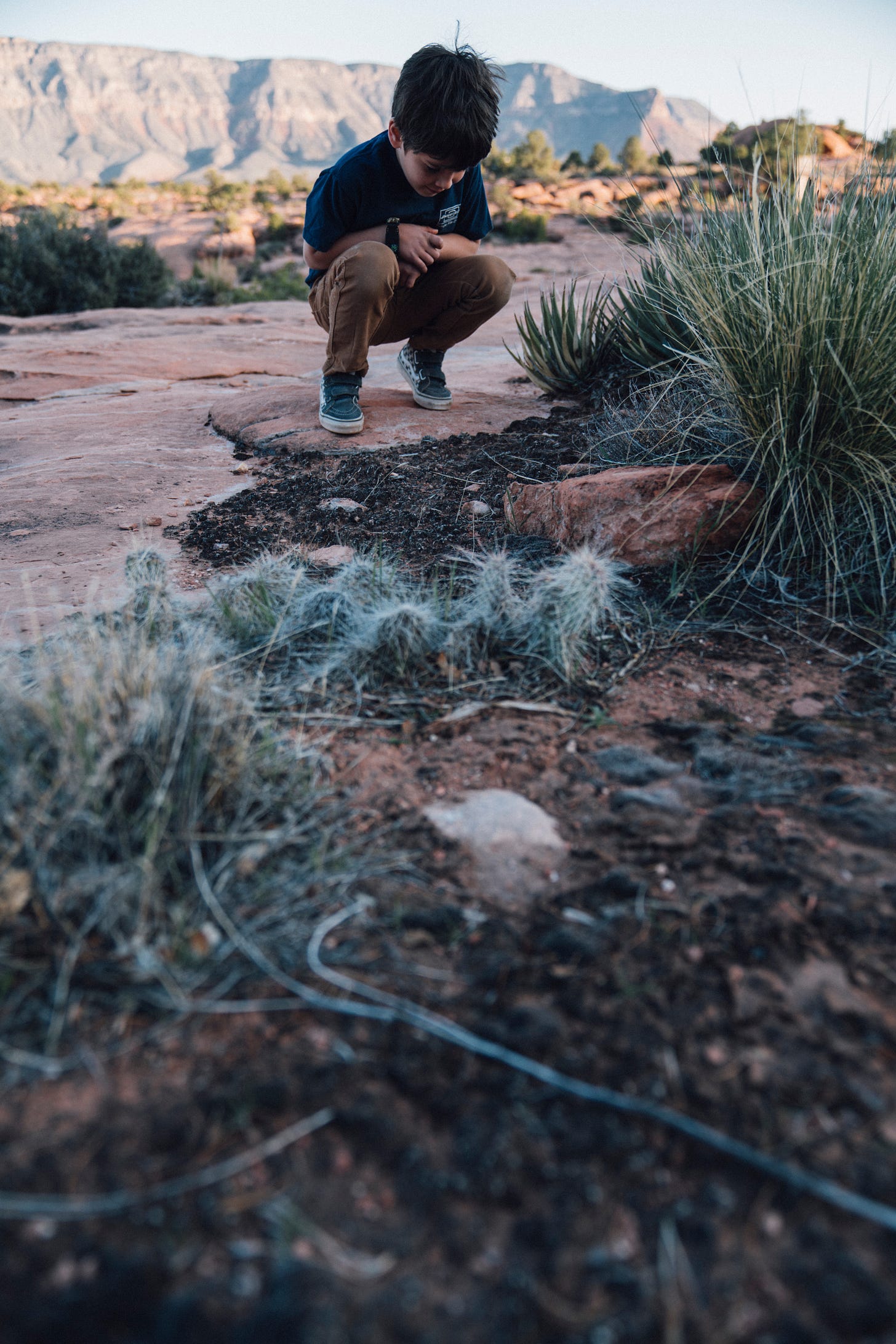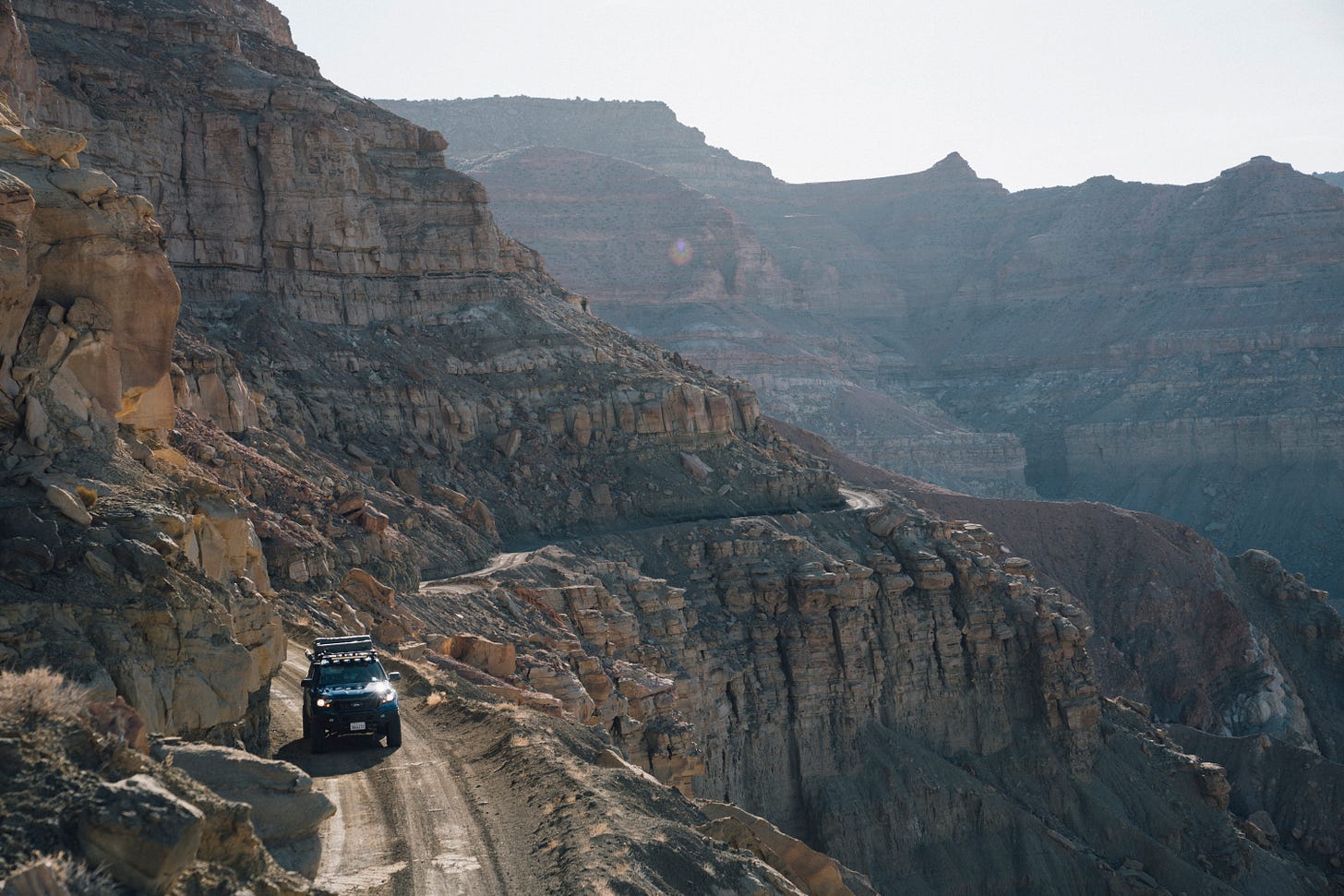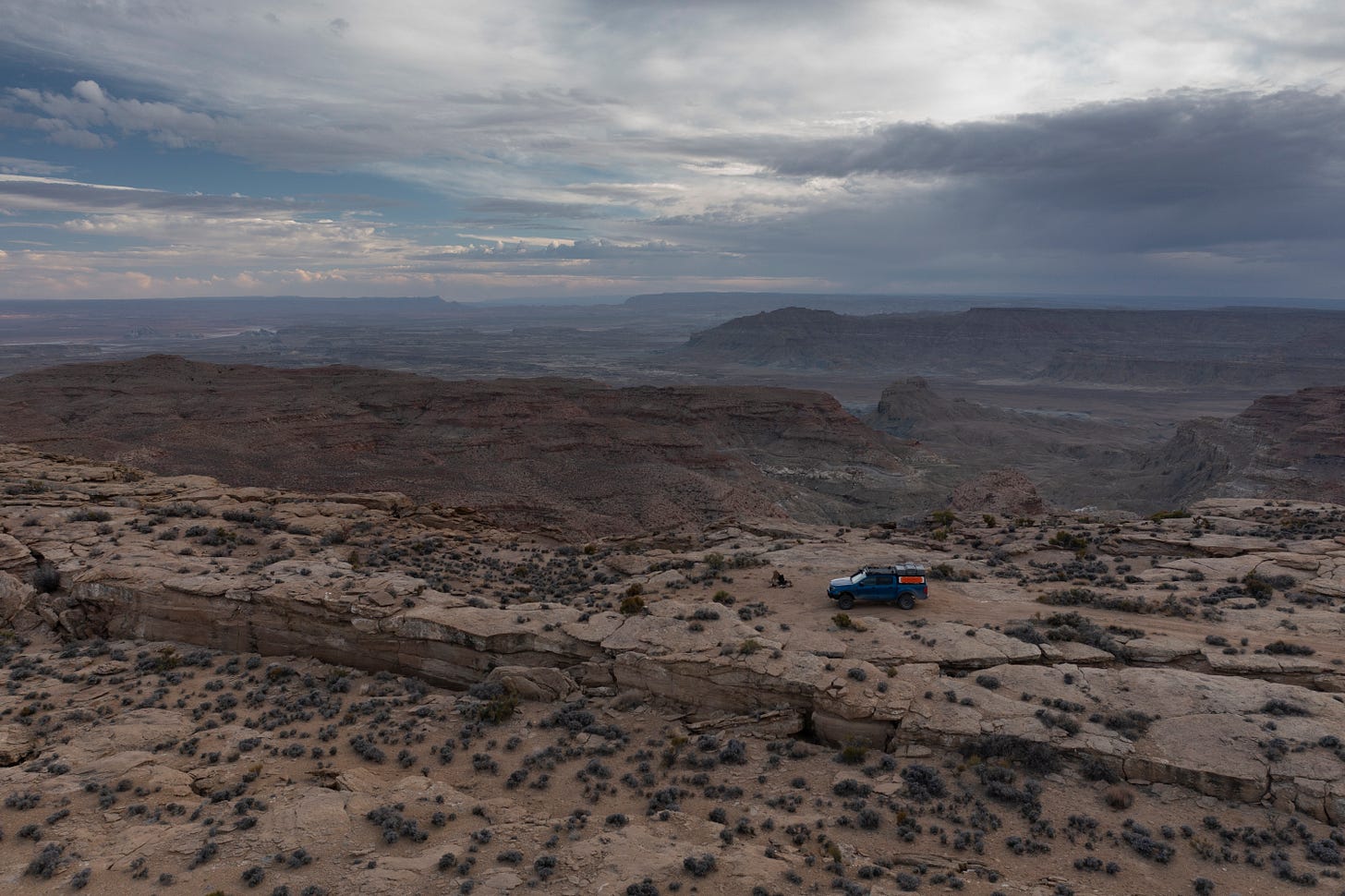It was the spring of 2021, the world was still adjusting to a new normal. Dusk settled in as we drifted into the eastern edge of the Mojave, where the Joshua trees grow like surrealist sculptures left behind by a smarter species. My son, seven and full of theories, grew uneasy. The trees made him nervous. He started in on Desert Bigfoot again. This had become a theme. Five days on the road will do that to a kid with an active imagination and no iPad. I’d heard about Bigfoot’s cousin in Utah, his cave system in Arizona, his preference for beef jerky over granola bars. This desert variant had a thing for Joshua trees and children under ten.
As we climbed the canyon, the flora shifted, J-tree giving way to pinyon, juniper. For the first time on the trip, we passed other campers, six or seven trucks in a loose circle, music playing low, someone poking at the fire.
Cooper asked if we could stay with them. “To be safe,” he said. “From Bigfoot.”
“We don’t camp near other people, my man,” I told him. “It’s not the way.”
The road degraded fast after that, like most do once you leave behind the weekend crowd. Narrower, rockier, more committed. A proper 4x4 track with a few sharp turns and loose boulders, the kind that demands you get out and scout even when you’re tired. Eventually, we landed in a cove of granite boulders, a familiar kind of place. The kind you have to earn. No signal, no footprints. A small gatekeeper in the landscape that keeps the timid and the two-wheel-drive types out.
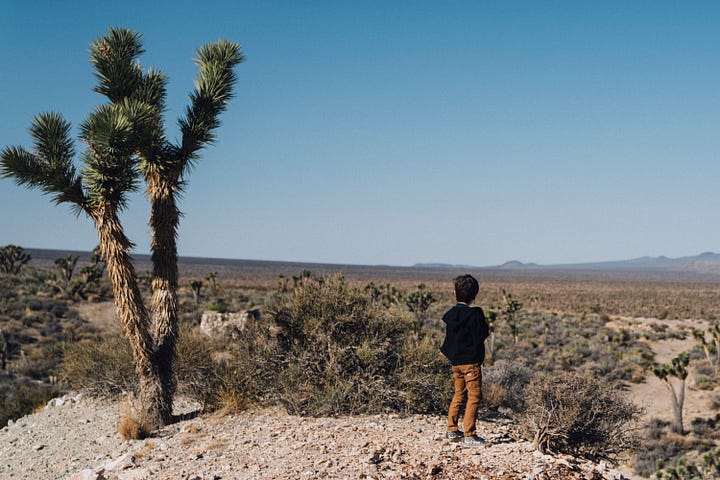
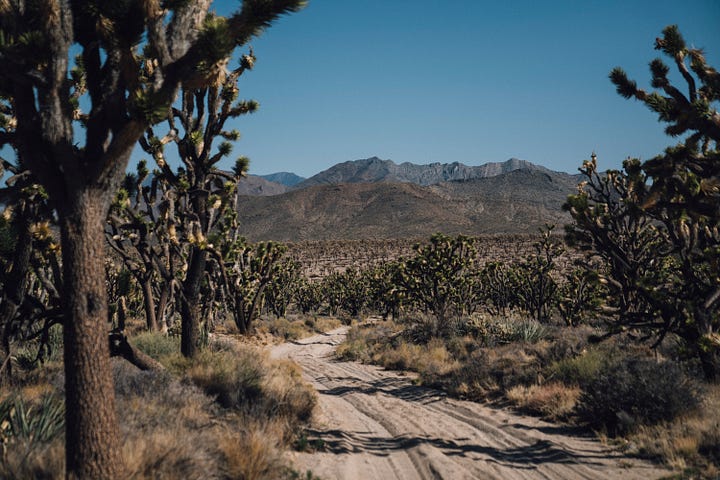
These places have become essential to me. After seventeen years in Los Angeles, the desert is the only thing that can quiet the noise. It doesn’t ask anything of you except presence and maybe a spare gallon of water or two. I come out here when I can, as much as possible with my son. He was learning how to build a fire, read a map, identify a lizard, whittle a stick with his new knife. I’m trying to teach him how to be still in wild places. It’s a slow process.
Five days earlier, we’d stood on the North Rim of the Grand Canyon, staring out into a silence so deep it felt structural. Cooper had opinions—many of them. He wanted rocks. He wanted ancient archeology. He wanted the skeletons of things once alive. He was seven, but the agenda was real. And fortunately, mostly aligned with mine.
We camped beneath a bulging sandstone wall, ants beneath a red cathedral. He used a yucca stalk he’d sharpened with his pocketknife as a pointer, conducting a tour of his new kingdom. Every rock had a purpose. Every canyon wall was part of a fence enclosing a world that only he understood.
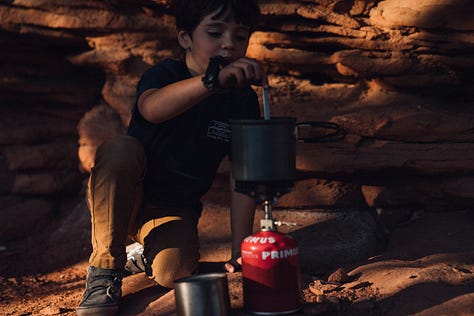
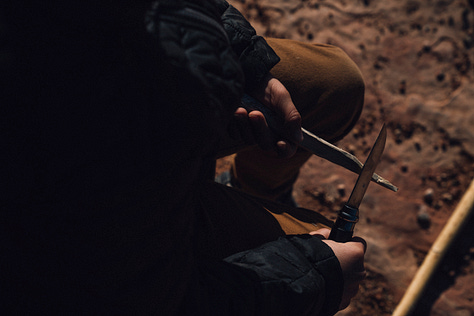
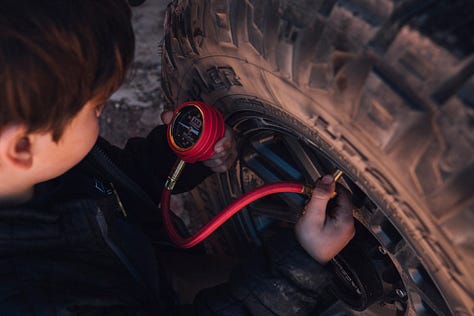
At one point, he stopped at the base of an old juniper, its limbs twisting like bones. The wind had picked up, carrying sand low across the earth. He pointed at it and said the sand was looking for a better place to land. “Too much stuff already hiding in the roots,” he explained.
I hadn’t expected fatherhood to feel like this, like being shown a place I already loved through an entirely new lens. I’d been through these canyons a hundred times, but now I was down on my knees, inspecting cracks for signs of life, searching puddles for clarity.
When I showed him a desert pothole, those shallow sandstone basins that catch the rare gift of rain, we crouched low beside it. The water had fallen earlier that afternoon, a brief pulse from a passing storm that barely wet the earth but left enough behind to pool in the rock like a secret. These ephemeral reservoirs, tinajas, some call them around the southwest, are sacred in their way. They sustain everything. Spadefoot toads, bees, foxes, even the stray bighorn. The entire desert seems calibrated around them. My good friend Ace, who lives deep on the Colorado Plateau, always gives his weather report based on the depth or lack of depth of teh potholes. One careless bootprint, one drop of sunscreen, and the whole ecosystem collapses.
We didn’t talk. We didn’t need to. I dropped to my stomach and he followed, mirroring me. We lay there flat on the rock, lips at the edge of the surface, and drank. No Nalgene, no filter. Just water, mineral-rich and sun-warmed, tasting faintly of dust and stone. Only our mouths broke the surface—no hands, no splashing. There was reverence in it, whether he knew it or not.
The moment felt prehistoric. Animal. Holy. A father and son face-down on hot rock, drinking rain from a sandstone bowl in the middle of nowhere. I watched the water ripple, then still. I told him not to dip his fingers in.
He nodded and whispered, “Okay.”
Rainwater, three hours old. A rare communion. He smiled like it was the most natural thing in the world.
And maybe it was.




